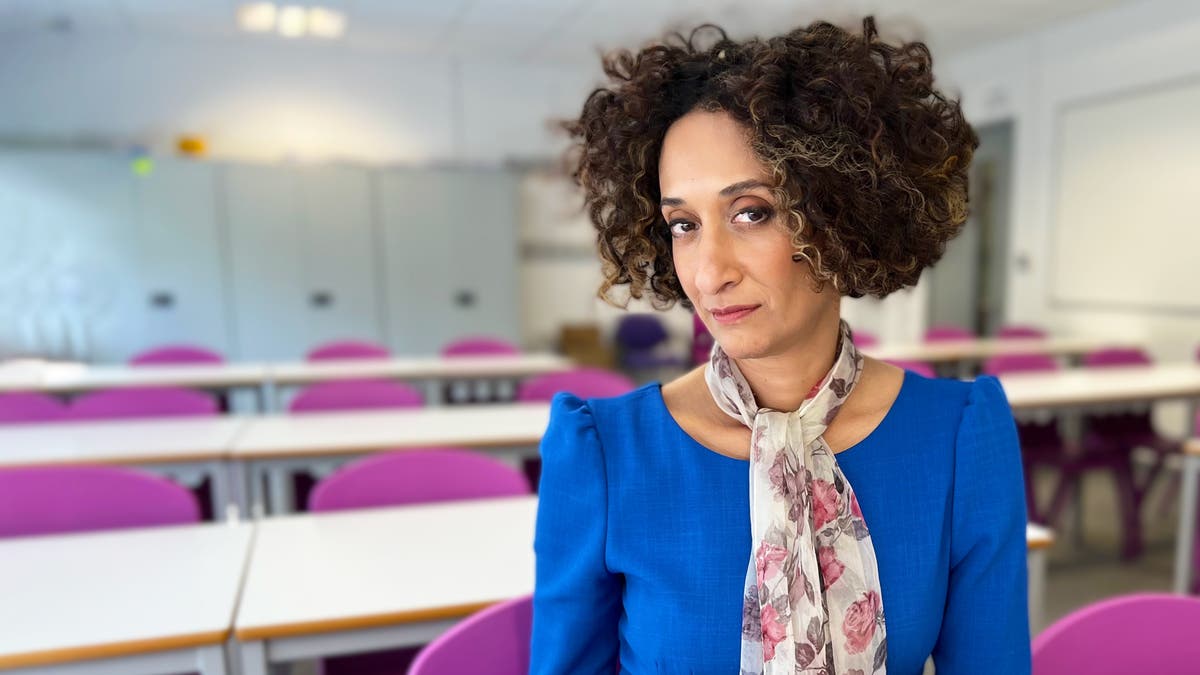A Muslim student at Michaela Community School in London, once dubbed Britain’s strictest, has lost a High Court challenge against its ban on “prayer rituals”.
The pupil, who cannot be named, took legal action against Michaela Community School in Brent, claiming the policy that forbids her from praying for around five minutes at lunch time, on dates when faith rules required it, but not during lessons, is discriminatory and “uniquely” affects her faith due to its ritualised nature.
She alleged that the school’s stance on prayer – one of the five pillars of Islam – was “the kind of discrimination which makes religious minorities feel alienated from society”, a judge was told.
The case against the free school was heard at the High Court in London in January.
The pupil’s lawyers previously said the “prayer ban” unlawfully breached her right to religious freedom, adding that it made her feel “like somebody saying they don’t feel like I properly belong here”. The court was told the pupil, referred to only as TTT, is making only a “modest” request to be allowed to pray at lunchtime.
The student also challenged allegedly unfair decisions to temporarily suspend her from school.
In a written ruling on Tuesday, Mr Justice Linden dismissed the pupil’s arguments against the prayer rituals ban. The judge upheld the student’s challenge to a decision to temporarily exclude her from the school.
The school’s lawyers claimed its prayer policy was “justified” and “proportionate” after it faced death and bomb threats linked to religious observance on site.
They added that the governors and headteacher at the school of some 700 pupils, about half of whom are Muslim, had “a margin of latitude, discretion or judgement” over its policies.
The case will be seen as upholding the right of non-religious schools to make their own decision about whether to set aside time and space for pupils to pray.
During a two-day hearing, the school’s founder and headteacher Katharine Birbalsingh said on social media that it was defending its “culture and ethos” along with decisions to “maintain a successful and stable learning environment where children of all races and religions can thrive”.
Posting on X, formerly known as Twitter, she said the school decided “to stop prayer rituals when some pupils started them, against a backdrop of events including violence, intimidation and appalling racial harassment of our teachers”.
The court was told that Ms Birbalsingh, a former government social mobility tsar, first introduced the policy in March last year, with it being backed by the governing body in May – allegedly “on the basis of misinformation and errors”.
In March 2023, up to 30 students began praying in the school’s yard, using blazers to kneel on.
Lawyers for the school said students seen praying outside contributed to a “concerted campaign” on social media over the school’s approach to religion, with there also being a since-removed online petition attracting thousands of signatures.
The court heard the school was targeted with death threats, abuse, “false” allegations of Islamophobia, and a “bomb hoax”.
Reversing the school’s “emergency” ban would again expose it to “an unacceptable risk of threats”, its lawyers said, adding that it avoided “the logistical disruption and detriments to other school activities”.
The court was told “Muslim children were observed to be applying peer pressure to other Muslim children to act in certain ways”, with the school claiming that allowing prayer rituals risked “undermining inclusion and social cohesion between pupils”.
Following the hearing, Ms Birbalsingh told The Sunday Times the legal process was “taking a massive toll” and argued the school should “be allowed to be secular”.
She told the paper the school will “definitely appeal if we lose”, adding: “I will not divide children according to race and religion; it will not happen under my watch.”

